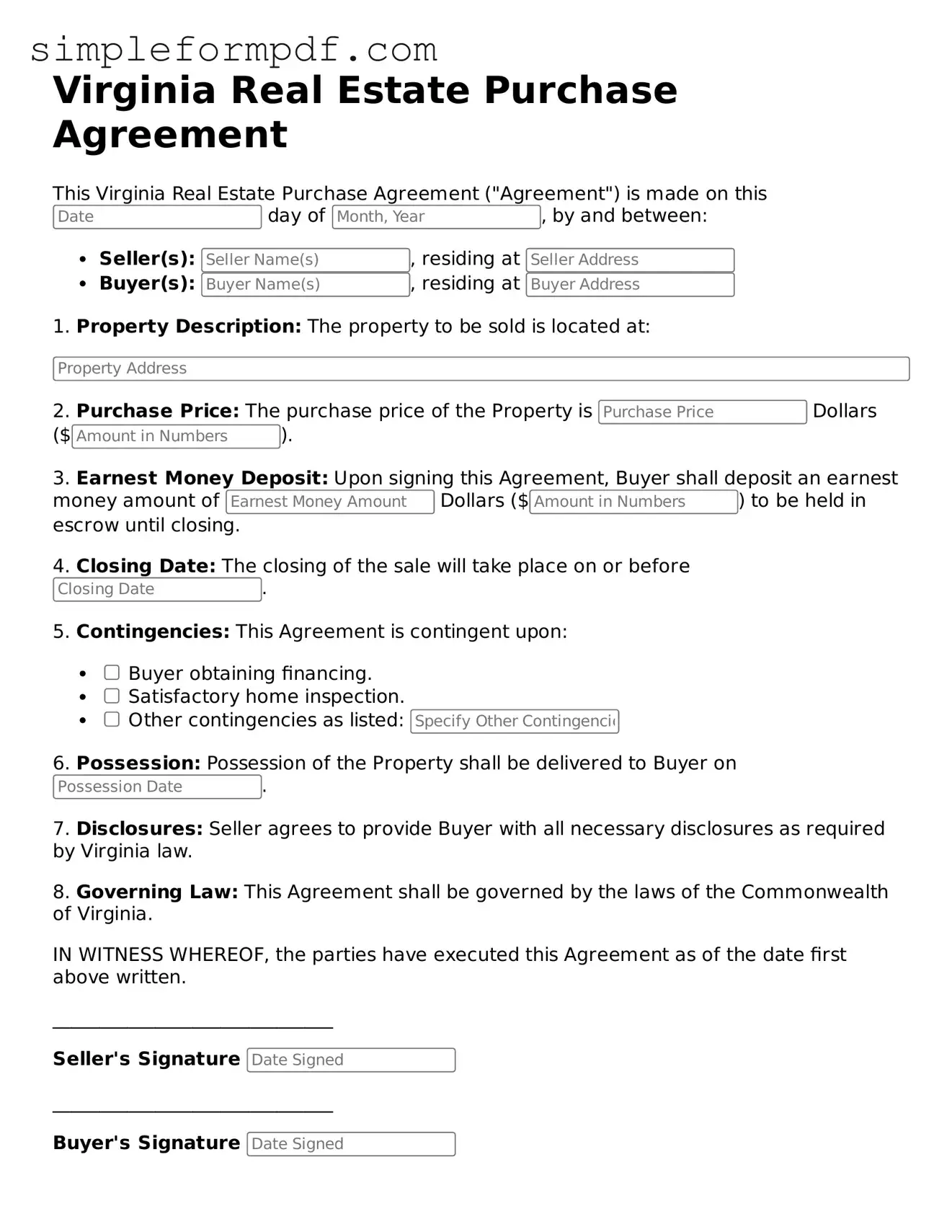Free Real Estate Purchase Agreement Form for the State of Virginia
The Virginia Real Estate Purchase Agreement is a legal document that outlines the terms and conditions of a real estate transaction in Virginia. This form serves as a binding contract between the buyer and seller, detailing important aspects such as purchase price, financing, and contingencies. Understanding this agreement is essential for anyone involved in buying or selling property in the state.
Ready to take the next step? Fill out the form by clicking the button below.
Launch Editor

Free Real Estate Purchase Agreement Form for the State of Virginia
Launch Editor
Need instant form completion?
Finish Real Estate Purchase Agreement online in just a few minutes.
Launch Editor
or
Download PDF
